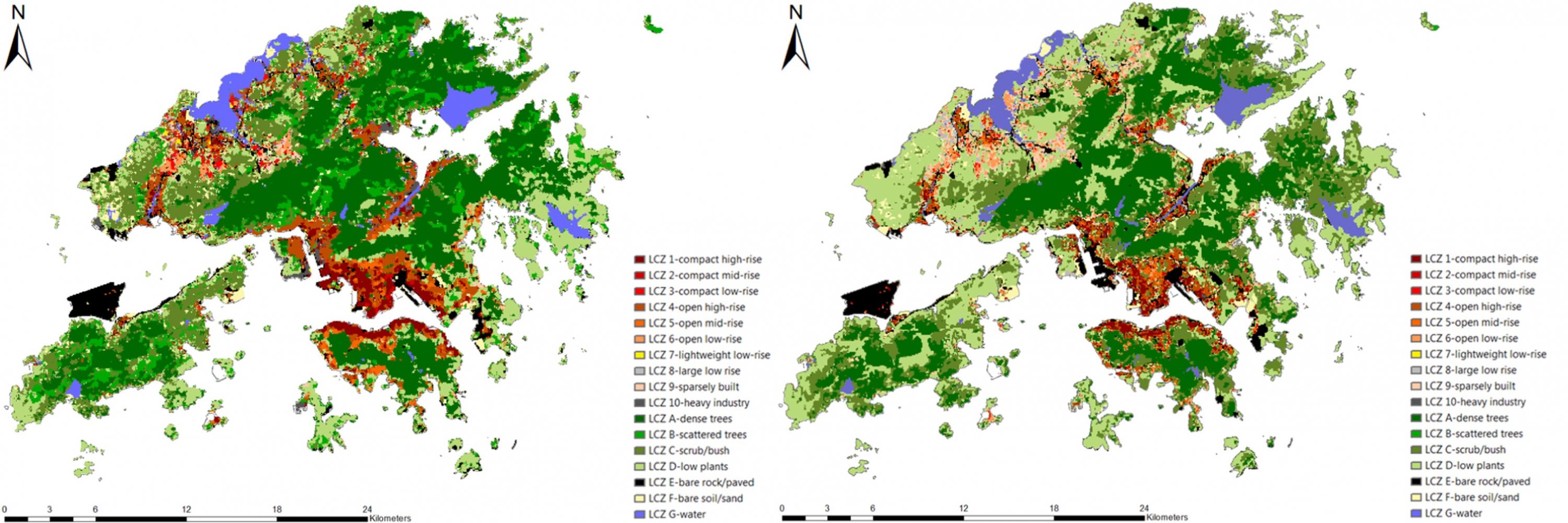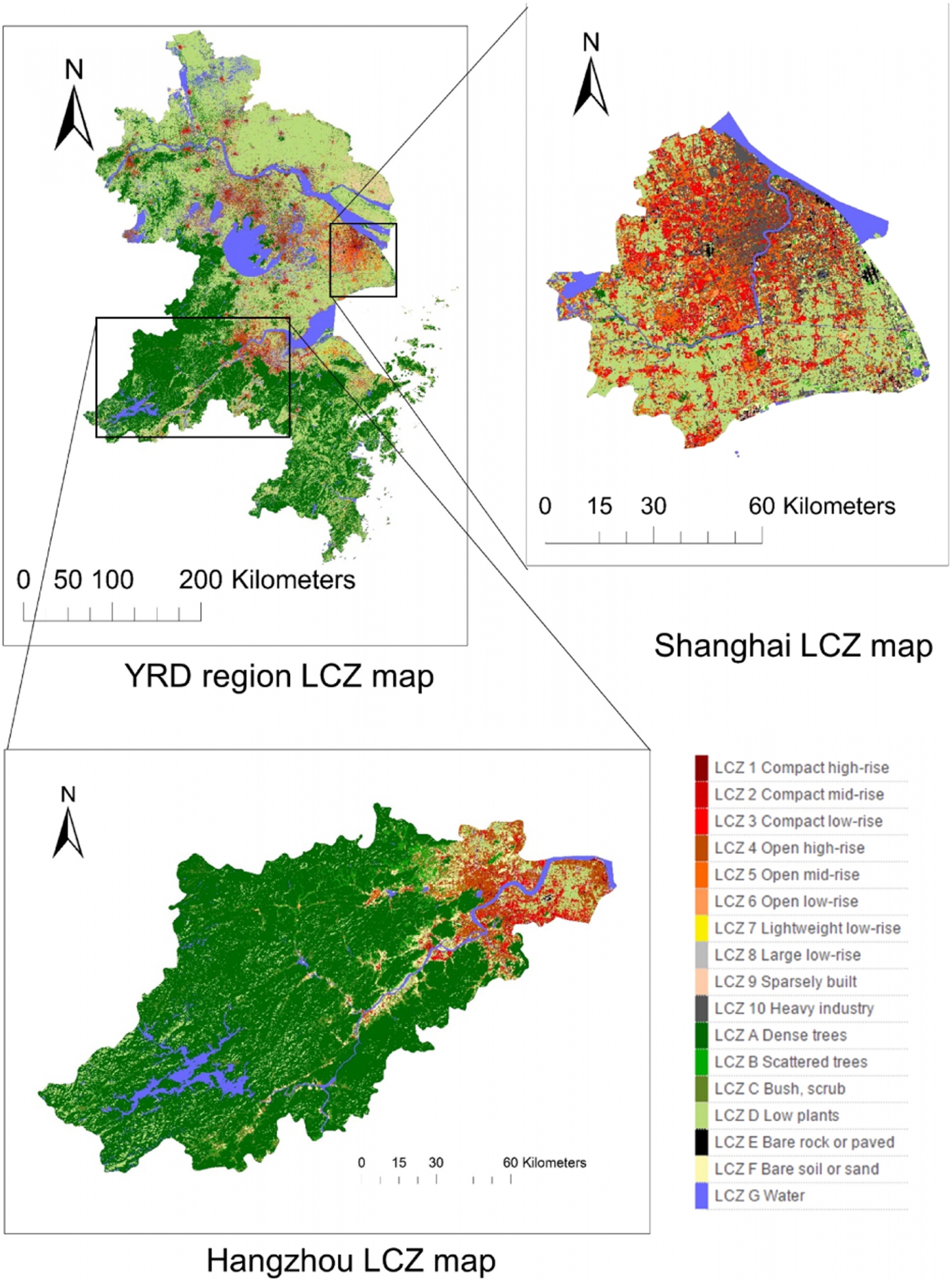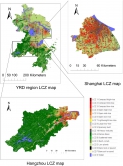CUHK
News Centre
Three CUHK Architecture PhD Students’ Papers About Healthy City Achieved “Most Cited Articles” in the Journal of Urban Climate
Three PhD students from the School of Architecture at The Chinese University of Hong Kong (CUHK) have conducted urban climate studies in Hong Kong and the Yangtze Delta region in the Mainland to develop a globally applicable and open source detailed urban climatic map. Each of their journal papers was recently recognised as being amongst “the most cited articles since 2017” published by Urban Climate, an international academic journal. This shows urban climate studies conducted by Hong Kong researchers are of great concern and reference value to global researchers.
The role of cities in addressing climate change is especially important within the context of urban population expansion, which is expected to result in 68% of the world’s population living in cities by 2050 (UN DESA 2018). The Intergovernmental Panel on Climate Change (IPCC) recognised the key role of scientific research on urban climate (e.g. urban heat island effect, air pollution and their impacts on health) and policy making at a city level in the global response to climate change. However, the challenges of environmental data acquisition, collection, and lack of standardisation have obstructed the research progress and the actions for addressing climate change. Yingsheng ZHENG (graduated in 2019), Ren WANG and Meng CAI (current students), three PhD students from the School of Architecture at CUHK, have analysed open source satellite remote sensing images and classified land use and building forms to advance the development of a globally applicable and open source detailed urban climatic map.
These three studies selected Hong Kong and the Yangtze Delta region, which are complex and with high-density urban morphology, as case studies that can be referenced by urban climatic researchers worldwide and help complete related research methodology. The research findings of these three articles can enhance the accuracy and the efficiency of urban morphological data acquisition, which allows researchers, architects and urban planners to understand the relationships between climate and urban environment. This will benefit the planning of future healthy cities, public health policies and climate change adaptions.
CUHK has been committed to promoting research related to sustainable development and the environment as one of the four strategic areas of research. Yingsheng ZHENG, Ren WANG, and Meng CAI are supervised by Professor Edward NG, Yao Ling Sun Professor of Architecture and Associate Director of the Institute of Future Cities (IOFC), and Professor Chao REN, Honorary Research Fellow of the IOFC. They have been conducting interdisciplinary research with the School of Architecture, Institute of Environment, Energy and Sustainability and the IOFC. Their main research themes are health, urban environment, Hong Kong future development, Hong Kong new development areas, liveable cities, and smart cities. They have also conducted consultancy projects on urban climate and environment commissioned by the Planning Department and Architectural Services Department of the Hong Kong government as well as municipal governments in the Mainland. In recent years, they have also been invited by the World Meteorological Organization and the World Health Organization to participate in the preparation of guidelines on urban climate applications, heat wave and hot weather-related health issues.
Urban Climate is a leading international academic journal in the field of urban climate. It publishes research on theory, science and applications relevant to urban climatic conditions and change relevant to their geographic, demographic, socioeconomic, environmental, and global change.
Journal Papers Achieved “Most Cited Articles” in Urban Climate
1. GIS-based mapping of Local Climate Zone in the high-density city of Hong Kong; Yingsheng ZHENG
2. Investigating the relationship between local climate zone and land surface temperature using an improved WUDAPT methodology – A case study of Yangtze River Delta, China; Meng CAI
3. Mapping the local climate zones of urban areas by GIS-based and WUDAPT methods: A case study of Hong Kong; Ren WANG





